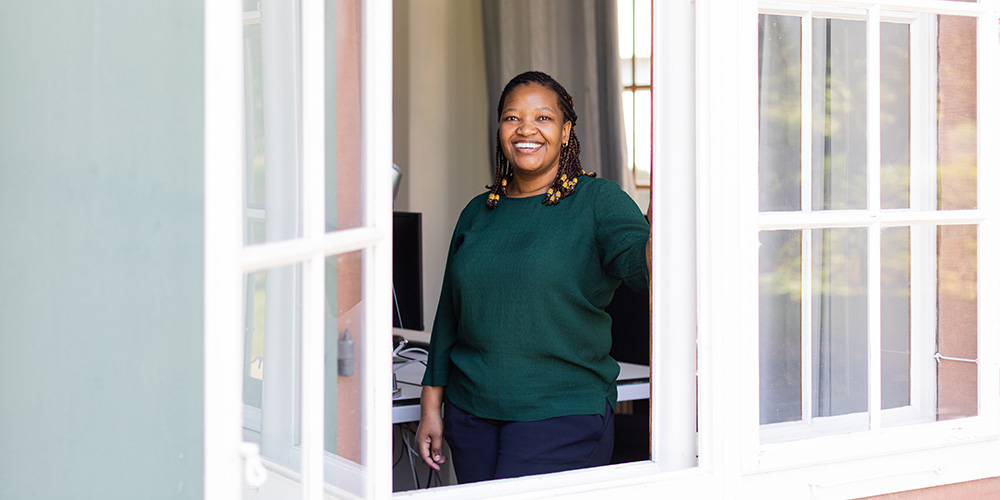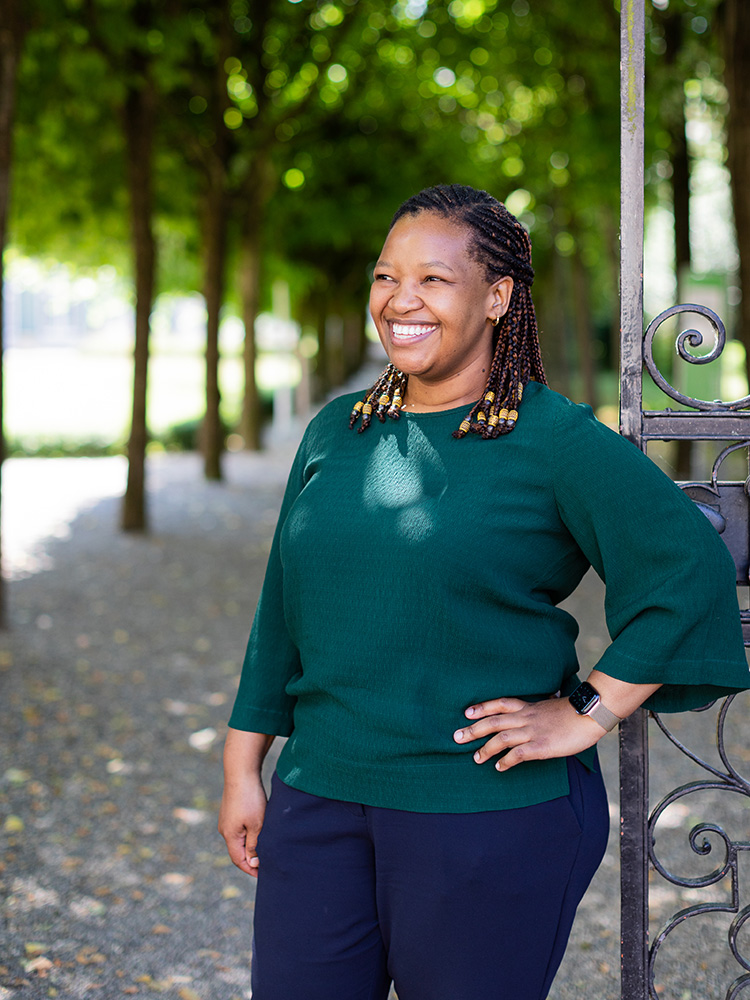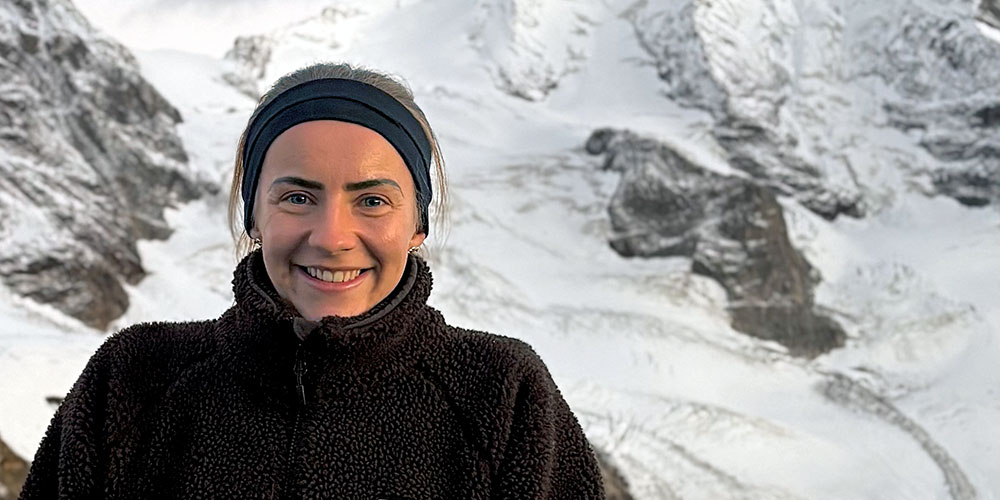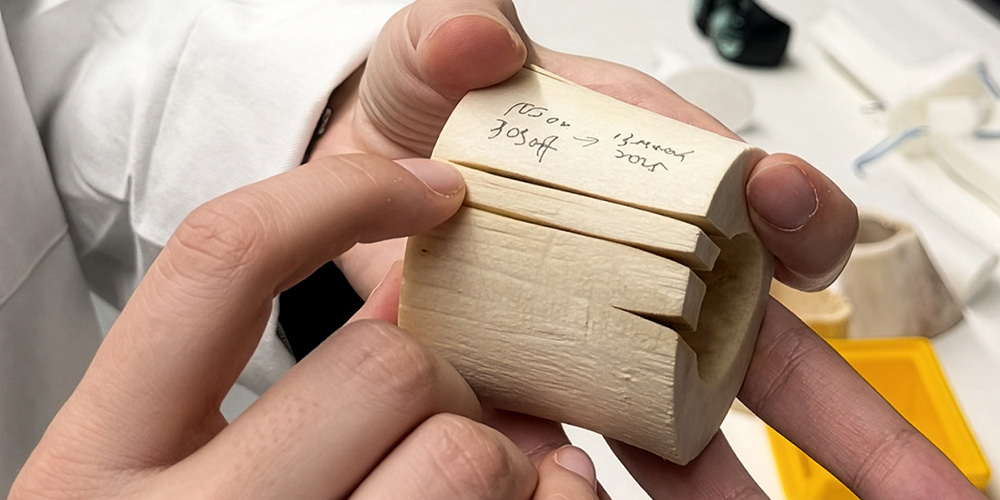In Focus: Lerato Posholi wants to move away from Eurocentric perspectives
Concepts help us to understand and classify the world. Often, however, we don’t realize where they come from and what underlies them. Lerato Posholi studies the politics of knowledge drawing from decolonial theory and social epistemology.
23 August 2023 | Noëmi Kern
Can we use concepts from the Global South to study Europe? What may sound at first like a rhetorical question is the focus of the research project “Reversing the Gaze: Towards Post-Comparative Area Studies”. The project is supported by the Swiss National Science Foundation and aims to transcend the Eurocentrism so often seen in academia: “European experiences and perspectives are often applied to Africa or South America and Europe’s experiences are portrayed as universal. For this reason, the social sciences are frequently accused of being Eurocentric,” explains Lerato Posholi.
The South African researcher is a postdoc at the Institute for European Global Studies of the University of Basel. The project examines how concepts from the Global South could prove helpful in the description, analysis and interpretation of particular phenomena in Switzerland, Austria and Italy. For example, one case study uses ‘retribalization’, a concept usually applied to African contexts, to study migration and citizenship in Switzerland.
As part of the project, Posholi investigates the politics and philosophy of concepts and their use. She studied philosophy and international relations and then completed her PhD in Education at the University of the Witwatersrand, Johannesburg.
She has been working on “Reversing the Gaze” since late 2020. She came to Basel as early as April 2019, however, on an invitation from Ralph Weber, Professor of European Global Studies. She had met him the previous year at a summer school in Dakar. “He thought my academic background would be a good fit with ‘Reversing the Gaze’ and wanted to hire me as a postdoc after I graduated,” she recalls. During her year-long research stay as an International Fellow of the Institute for European Global Studies and the Centre for African Studies at the University of Basel, funded by the Oumou Dilly Foundation in Basel, she was able to divide her time between finishing her doctoral dissertation and getting to know the city.
New perspectives, new solutions?
Along with Ralph Weber, Lerato Posholi is responsible for the theoretical portion of the work. That appeals to her: as a philosopher and educational scientist, she is interested in the politics of global knowledge. Concepts are part of that. “They help us to make sense of the world. And because they do not only describe a single situation, but instead are abstract, they can be applied to a variety of situations.” The project ties in nicely with this: the researchers strip the well-studied concepts of their familiar context and apply them in a new environment.
The research project is based on three case studies: migration and citizenship in Switzerland, right-wing populism in Austria, and social welfare policy in Italy. The researchers apply concepts to these issues that were developed for studying political processes and structures in the Global South: re-tribalization, political society and the cunning state. This enables new perspectives and could inspire new approaches to solutions.
Culture shock despite preparing
On a personal level, the move to Switzerland brought new perspectives to Lerato Posholi. She explains not knowing much about the country before moving here, except for some few stereotypes: “Of course, I knew that everything is expensive and clean here,” she says with a smile. To get a more realistic idea of life in Switzerland, she prepared by watching YouTube videos. This is how she learned, for example, that one shouldn’t sit in the same compartment as other passengers on public transportation if there are still empty compartments. “So, early in the morning on the train from Zurich Airport to Basel, I went and sat in an unoccupied compartment with all my luggage.” A moment later, a man sat down next to her – despite the fact that the train was almost completely empty. She was accordingly baffled.
It turned out that he was a postdoc at the University of Basel and had done fieldwork in Uganda. “He explained that I looked as confused as he had felt when he first arrived in Uganda, and he wanted to help me.” He showed her that there are places in the train car to stow luggage, and he accompanied her to the student dormitory in Basel. “That was a nice first experience in this new environment,” Posholi remarks.
Sociability on a schedule
She has now gotten used to Basel. She describes the city as “calm and chill,” just like her. “I don’t want constant adventure. I prefer routine, stability and quiet.” Nevertheless, she misses her home and its familiarity. Life in Switzerland is different in many respects from life in South Africa. She has tried to explain the sociocultural differences to her family, “but it’s hard to put them in words.” She names a few examples, though: the way in which people connect with each other, for instance. In her homeland, social interactions are spontaneous, constant, and everywhere: at the traffic signal, the supermarket, the bus stop – they’re an integral part of daily life. Here in Switzerland, people meet intentionally for social interaction at events such as BBQs and parties.
This is a new experience for Posholi. “I am not anti-social, but I’m just not very good at this. I never used to think of myself as an introvert, but here I have the impression that I am,” she says. She finds it both challenging and exciting to always be trying to fit in.
In Focus: the University of Basel summer series
The In Focus series showcases young researchers who are playing an important role in furthering the university’s international reputation. Over the coming weeks, we will profile academics from different fields – a small representative sample of the 3,000+ doctoral students and postdocs at the University of Basel.




